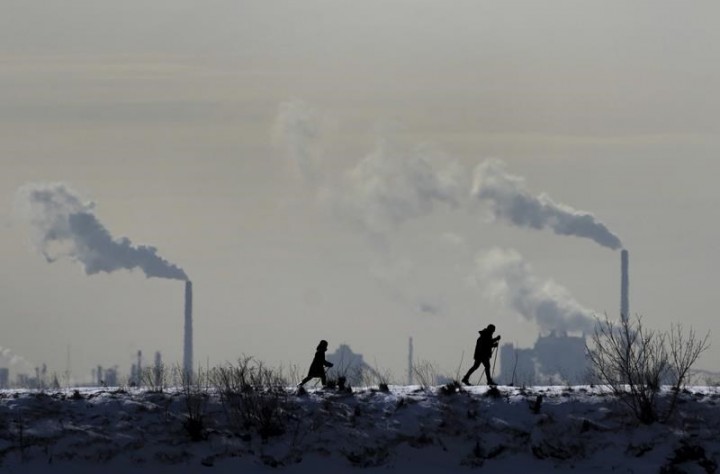
OTTAWA — Environment Minister Steven Guilbeault says Canada is issuing a challenge to the rest of the world to expand the use of carbon pricing in the fight against greenhouse gas emissions.
But his challenge comes as a new survey suggests a majority of Canadians want the Liberal government to freeze its own carbon price until inflation has receded.
Guilbeault is in Egypt for the annual United Nations climate talks, where this year’s goal is an agreement focused on getting countries to actually implement the climate promises they’ve already made.
Efforts are still underway to push the world to do more, though, and Guilbeault said Canada sees an expansion of carbon pricing as one of the ways to do that.
“We’re inviting more countries around the world to put a price on pollution,” he said.
About 23 per cent of global emissions are currently subject to carbon pricing, and Guilbeault said the goal of the challenge is to increase that to 60 per cent by 2030.
He said carbon pricing is one of the most effective ways to lower greenhouse gas emissions, and its use sends a signal to polluters that pollution isn’t free.
The opposition Conservatives — who have been actively campaigning against carbon pricing for more than a decade — are now saying that the policy is adding to the cost of inflation.
In his criticisms, Conservative Leader Pierre Poilievre doesn’t mention the quarterly rebates the government sends families to offset the carbon price in the four provinces that use the federal system.
But despite the payouts, a new poll suggests Canadians are in Poilievre’s corner.
A survey for The Canadian Press by Leger and the Association for Canadian Studies suggests that Canadians want the federal Liberals to freeze the carbon price until inflation recedes.
The poll of 1,537 adult Canadians, conducted online between Nov. 11 and Nov. 13, cannot be given a margin of error because internet-based polls are not considered random samples.
A large majority of respondents — 77 per cent — agreed that the carbon price should be frozen until inflation eases and prices begin to moderate. Only 14 per cent disagreed.
The approval of a freeze was consistent across supporters of all parties, including the governing Liberals. Seventy-two per cent of respondents who identified as Liberal supporters agreed with a freeze, versus 73 per cent of NDP supporters and 91 per cent of Conservative supporters.
Support for pausing the policy was also above 80 per cent in every province except for Quebec, where it was at 71 per cent, and Ontario, where it was at 75 per cent.
Guilbeault did not know about the poll when he was interviewed for this story, but said from Egypt that he knows not all Canadians are convinced about carbon pricing.
Still, he still believes it works and that Canada and Chile, the country co-leading the carbon pricing challenge, will be able to bring others on board.
Eight other countries and the European Commission, the executive branch of the European Union, signed on to the challenge to start. All of them already have or are already developing carbon pricing policies.
The U.S.-based Citizens’ Climate Lobby, which keeps a running tab of carbon pricing systems around the world, lists at least seven other countries that have carbon prices but aren’t yet part of Canada’s challenge. It says about 23 per cent of global emissions are subject to some level of carbon pricing.
Carbon pricing can include direct levies on fuels based on their emissions, and cap-and-trade systems where emitters that exceed a set emissions cap must buy credits from those who emit less. Canada has both, with some provincial systems following cap-and-trade, and others using the direct levy.
Four provinces that don’t have an existing provincial system are using the national one, which also sends rebates to households.
John Morton, the United Kingdom’s special envoy on climate at the COP27 climate talks in Egypt, said in a conversation with Guilbeault on Tuesday that the U.K. is all in.
“Carbon pricing is going to be hugely important in order to keep us on track for a 1.5 C ceiling on global warming,” he said.
The carbon pricing challenge is similar to the Powering Past Coal Alliance, which Canada launched with the U.K. at COP23 in 2017 to push for ending the use of coal as a source of electricity.
This report by The Canadian Press was first published Nov. 15, 2022.
Mia Rabson, The Canadian Press
No comments:
Post a Comment